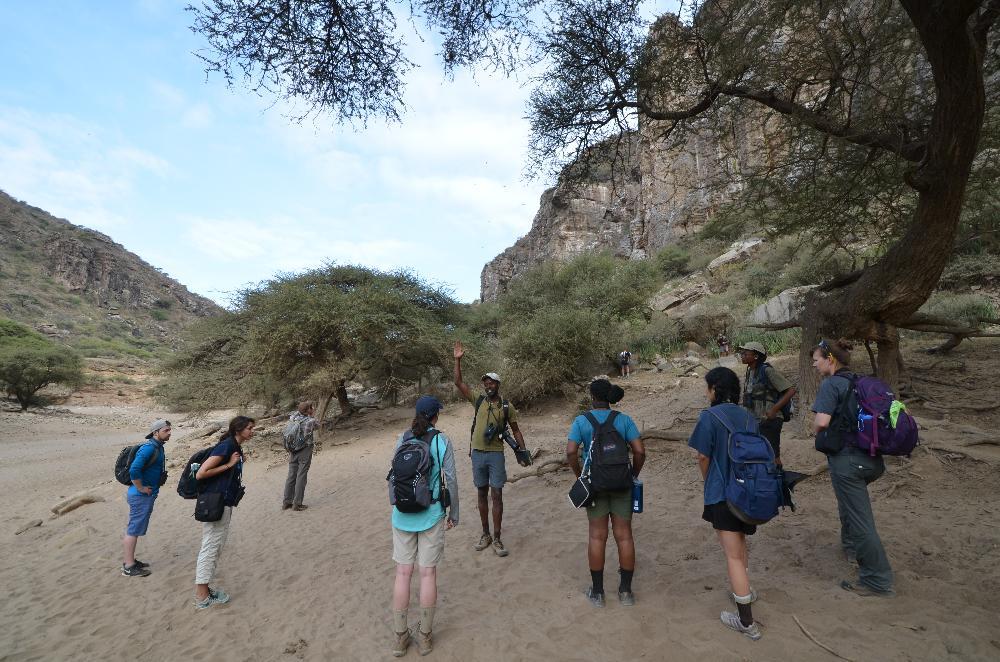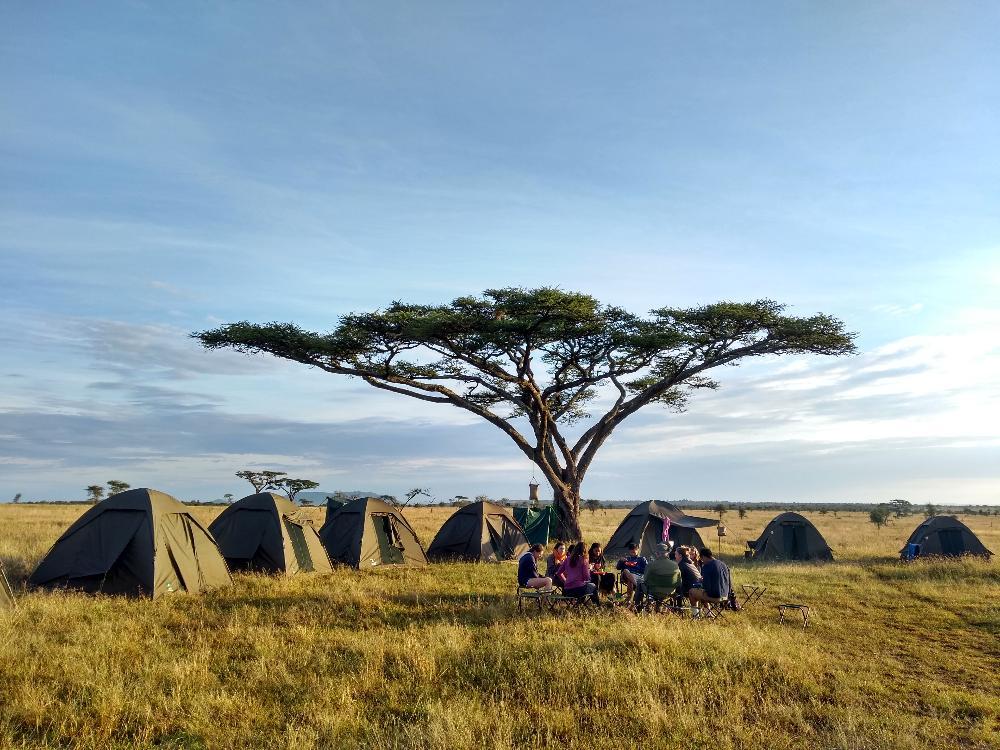About the Program
Ecology and Anthropology in Tanzania combines field research with cultural immersion in East Africa and is designed to help students learn about the centrality, the methods, and the rewards of field work in both the social and natural sciences. Over the course of the program, students will live with local host families in the Usa River community near Arusha and take classes in ecology, cultural anthropology, and Swahili. Excursions and field trips to sites such as local Maasai villages and national parks (Serengeti, Tarangire, and Mount Kilimanjaro) provide unique opportunities to learn about and interact with the people, wildlife and landscape of Northern Tanzania. The culmination of the program is research conducted under the guidance of regional experts, with the goal of serving student scholarship and contributing to a larger community benefit in Tanzania.
Program Objectives
- Deepen your knowledge of ecological, cultural anthropology, and behavioral issues through extensive field inquiry at unique sites, firsthand experience, and coursework.
- Develop your understanding of Tanzanian society, and cross-cultural literacy through cultural immersion.
- Develop a working knowledge of Swahili language sufficient to speak with local people and read newspapers and other materials.
- Apply research knowledge to an on-going research project under the guidance of local experts.
Program Location and Living Arrangements
For most of the program, students live in homestays in the community of Usa River, a 30-minute drive from Arusha which serves as the starting point for treks to Mt. Kilimanjaro and safaris in Northern Tanzania. You will live with a local host family along with another Global Engagement student, providing you the opportunity to work on your Swahili and immerse yourself in Tanzanian culture and customs. Classes will take place at the MS Training Centre for Development Cooperation (MS TCDC), a development management training institution which students will share with people from all over the world.
Program Travel and Excursions
There will be multiple field trips and excursions in northern Tanzania, including a safari through Serengeti National Park and Ngorongoro Crater where students will see the wildlife that call Tanzania home and visit landmark ecological and paleoanthropological site. These include Laetoli which contains ancient footprints preserved in volcanic sediment and Olduvai Gorge, the famous spot where archaeologists discovered fossilized remains of early humans, including skulls and stone tools. There will also be several overnight visits to Engikaret, a village north of Arusha, to expose students to Maasai culture. Students will stay in the cultural "boma" settlements and contribute to ongoing projects in the community. While in the field, students and staff will stay in mobile campsites.

 Courses
Courses
Students enroll in the following courses (Carleton credits equivalent to 4 semester credits each) for a total of 16 semester credits:
- Physical and Cultural Anthropology
- Ecology of Tanzanian Ecosystems
- Research Methods & Field Research
- Swahili Language
Sample Independent Study Projects
The capstone of the Tanzania program is an independent research project completed by students on a topic of their choice ranging from public health issues to wildlife studies. The first few weeks of the program will introduce students to the methods of site-based inquiry and allow students to develop their project proposal, including a visit to Tarangire National Park to familiarize students with the site and many options for their final project. Students will then spend the next several weeks collecting data in small groups with other students in and around Tarangire. At the end of the program, students will analyze their data, compile a final report, and present their findings to their classmates and the local community.
Examples of past independent study projects include:
- Friends or Foes: An Exploration of the Relationship Between the Maasai, the Tanzanian Government, and Tarangire National Park
- "Why Do You Think There Is Only One God?": A Study of Traditional Maasai Believers and Christian Maasai Living Near Tarangire National Park
- Pregnancy Practices of the Maasai
- Resolving Human-Elephant Conflicts Around the Border of Tarangire National Park
- Vervet Monkey (Chlororcebus Pygerythrus) Food Stealing Behaviors, Strategies, and Decision Making in Tarangire National Park, Tanzania
- Cultural Reasoning Concerning Education: A Western Interpretation of Modernity within Tanzania’s Maasai Community
- Maasai Women's Changing Role in Education and the Market: Areas of Empowerment
- The Effect of Tourist Vehicle Traffic on the Water Quality of Tarangire River During the Dry Season
- Future Implications of Water Scarcity: Is a “Water War” looming on the Border of Tarangire National Park?
- Understanding the History and Evolution of the Stratigraphy and Geomorphology of Burko Volcano, Northern Tanzania
- Modern Mammalian Death Assemblage, Serengeti National Park, Tanzania
- “A New Disease”: Perceptions of HIV among the Maasai
- Vitamin A Deficiencies in Children in Ngorongoro Division
Dates & Fees
Ecology and Cultural Anthropology in Tanzania runs every fall, early September to mid- December. Specific dates have not yet been announced.
The cost of the program can be found in the Budget Sheet.
Faculty & Staff
Information about Dr. Anna Estes, Faculty Director, will appear shortly!
Flyer_EATZ F24 #2_8.17.23 Digital.pdf
